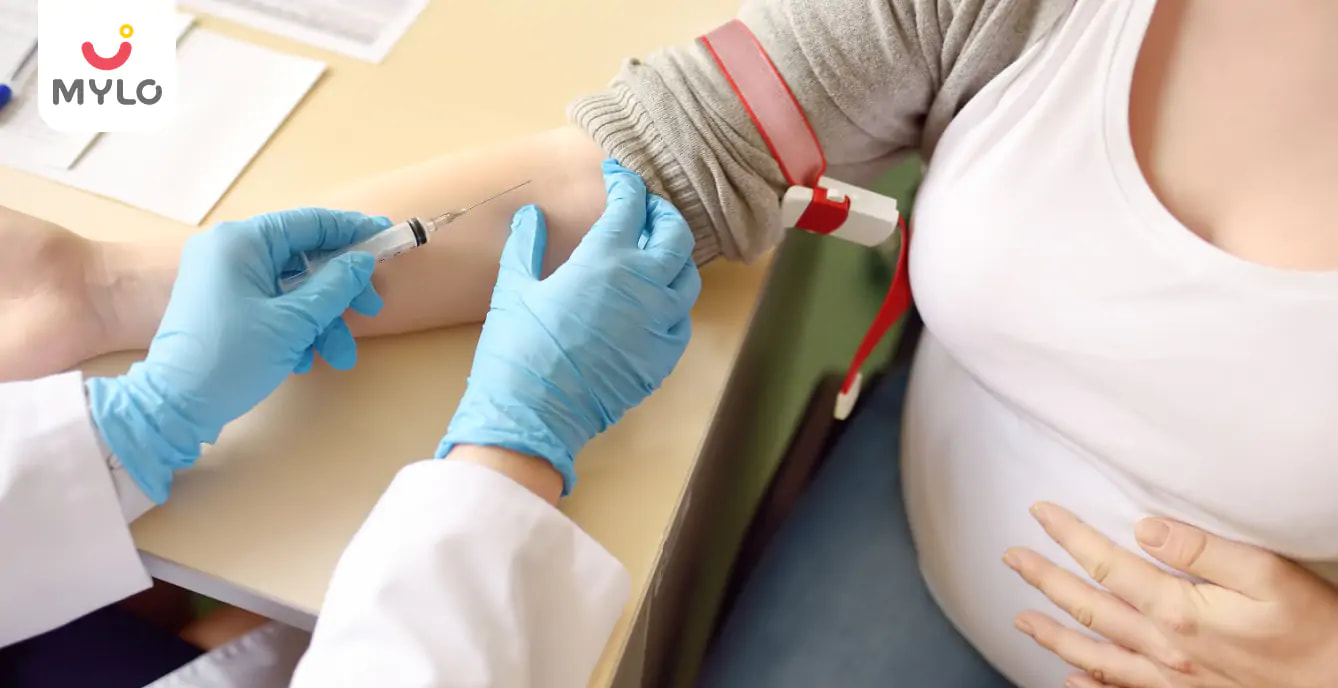Get MYLO APP
Install Mylo app Now and unlock new features
💰 Extra 20% OFF on 1st purchase
🥗 Get Diet Chart for your little one
📈 Track your baby’s growth
👩⚕️ Get daily tips

OR


Article Continues below advertisement
- Home

- Scans & Tests

- An Expecting Mother's Guide to Glucose Tolerance Test (GTT)
In this Article
- What is Gestational Diabetes?
- Important things to know before going for GTT
- What happens in GTT?
- 1. GTT for testing Diabetes
- 2. GTT for testing Gestational Diabetes
- How is gestational diabetes diagnosed with GTT?
- Are there any risks involved in GTT?
- Closing Thoughts
Scans & Tests
An Expecting Mother's Guide to Glucose Tolerance Test (GTT)
Updated on 24 July 2023
Diabetes is considered one of the most troublesome and serious diseases of the modern era. The number of victims of this non-communicable but severe disease is increasing every day amongst all age groups. Upon suspecting diabetes, the first thing your doctor is likely to recommend is for you to go through a Glucose Tolerance Test or GTT to check your body’s response to absorb and process glucose after you consume a particular amount of sugar.
What is Gestational Diabetes?
In very simple terms, gestational diabetes is a high blood sugar condition affecting pregnant women. It is a condition where pregnant women who did not have diabetes before conceiving suffer from high blood sugar levels during pregnancy. A gist of this health condition is that during pregnancy, a woman’s body releases hormones that can lead to a buildup of glucose in her blood. If the pancreas cannot make enough insulin to handle the excess glucose, the blood sugar levels shoot up and the result of this imbalance is gestational diabetes.
Like every other illness, a correct and timely diagnosis of gestational diabetes is very important before deciding the treatment and that is where GTT comes into play. Although the GTT is predominantly used to diagnose type 2 diabetes, it is also used for the diagnosis of gestational diabetes.
Article continues below advertisment
You may also like : Gestational Diabetes Mellitus in Pregnancy
Important things to know before going for GTT
Here are some steps you should follow to help prepare for your glucose tolerance test:
-
First and foremost, eight hours of fasting right before the test is mandatory. During the fasting period, beverages containing caffeine are strictly prohibited as these may distort the results. However, plain water can be consumed.
-
You must discuss with your doctor if you already suffer from an allergy or any other underlying medical condition and also the medications you are currently taking. Your doctor may have specific instructions for you to get ready for the test.
-
A urine sample may be needed before the test and therefore you need to hold on to your bladder for a while.
Article continues below advertisment
What happens in GTT?
The GTT is a long process involving several steps. When you arrive for the test after the fasting period of eight hours, a normal blood sample is the first thing the test lab attendant will take to measure your fasting blood sugar level. After this, the testing process differs slightly depending on the reason for the test, i.e. are you being tested for Diabetes or Gestational Diabetes.
1. GTT for testing Diabetes
After the blood sample for fasting sugar level is taken, a glass full of concentrated sugar solution or syrup is given to the patient for the next steps to be performed. This takes about two hours and a blood sample is taken after one hour and then finally at two hours to measure sugar levels. The patient can leave after this. Generally, fifty to seventy-five grams of glucose is mixed in two fifty to three hundred ml of water for this test. The amount of sugary syrup may be different in the case of children depending upon age.
2. GTT for testing Gestational Diabetes
The GTT process for testing Gestational Diabetes is somewhat similar to the process for testing diabetes but has some slight differences. There are generally two levels of tests for diagnosing or testing gestational Diabetes. The first one is exactly the same as the test described above. The second one generally involves two stages of testing and is done only if the first test bears a positive result.
It involves two stages depending on how the results appear at each stage - the first stage is a fasting level test, then a test after one hour followed by a test after two hours if the one-hour test levels are found to be high. This means a total testing period of three hours if one-hour levels are high or abnormal.
In the three-hour test, the lab attendant or the person conducting the test will ask you to consume a syrupy glucose solution that contains approximately 100 grams of sugar and then your blood sample will be taken at the intervals described above.
Article continues below advertisment
How is gestational diabetes diagnosed with GTT?
Usually, if the one-hour test shows a result higher than 140 mg/dl you will be sent to the next part which is the three-hour test. However, if the one-hour test results shoot beyond 190 mg/ dl you are already considered to be diagnosed with gestational diabetes.
For cases involving the three-hour GTT, the doctor may diagnose you to be normal and not suffering from gestational diabetes if two of the four blood results are lower than the following:
- In the normal fasting test, the blood sugar level is lower than 95 mg/dl
- After consuming the sugary syrup:
- In the one-hour test, the blood glucose level is lower than 180 mg/dl
- In the two-hour test, the blood glucose level is lower than 155 mg/dl
- In the three-hour test, the blood glucose level is lower than 140 mg/dl
However, in the three-hour test, if any of these levels go beyond the normal ranges described above, you are likely to be asked by your doctor to repeat the test after a month. If one or more than one finding still falls beyond the normal range, you will be diagnosed with gestational diabetes.
Also read : Top 7 Diet Tips to Control Your Sugar Levels During Pregnancy
Article continues below advertisment
Are there any risks involved in GTT?
GTT is considered a pretty safe procedure in itself but some people may face minor side effects. The ideal way to give the blood sample for the tests is in a lying down or sitting position. You must follow the doctor or lab attendant’s advice during and after the test. It is very important that you absolutely do not eat or drink anything on your own during the testing period as it may impair the test results. It is also important to have a normal, balanced diet in the days preceding the test.
Closing Thoughts
Gestational Diabetes can lead to several pregnancy complications. Doctors recommend and perform GTT typically between weeks 24 and 28 of the pregnancy. GTT is performed much earlier in the pregnancy if the woman is perceived to be at risk of diabetes or has already suffered from diabetes earlier.
A constant screening of increased sugar levels during pregnancy also becomes important because, after childbirth, women who suffered from gestational diabetes face an increased risk of diabetes and recurring gestational diabetes because of their underlying condition, which often gets aggravated by fat accumulation during pregnancy and post-pregnancy lifestyle changes.
GTT as a test or being diagnosed with gestational diabetes is nothing to be terribly scared of. You can easily prevent complications by diligently following your doctor’s advice and managing your sugar level during your pregnancy.
References
Article continues below advertisment
1. Rani PR, Begum J. (2016). Screening and Diagnosis of Gestational Diabetes Mellitus, Where Do We Stand. J Clin Diagn Res.
2. Gupta Y, Kalra B, Baruah MP, Singla R, Kalra S. (2015). Updated guidelines on screening for gestational diabetes. Int J Womens Health.



Written by
Mylo Editor
Official account of Mylo Editor
Read MoreGet baby's diet chart, and growth tips

Related Articles
RECENTLY PUBLISHED ARTICLES
our most recent articles
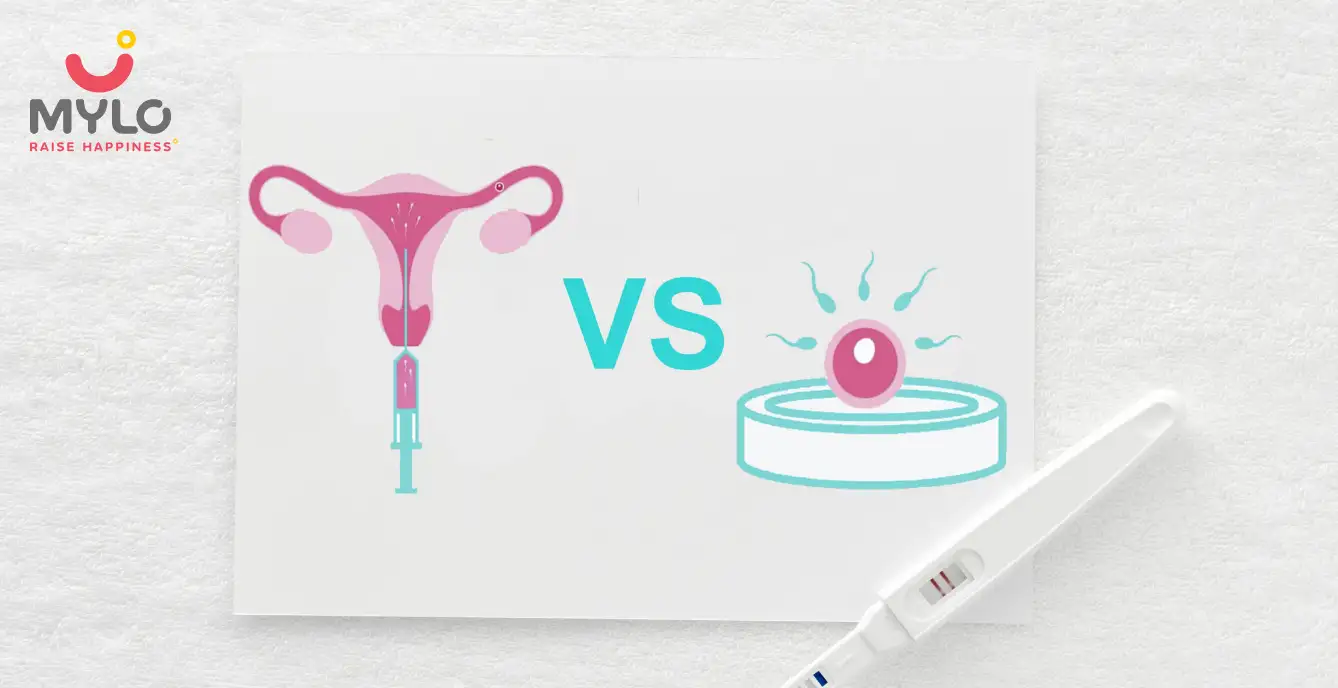
In Vitro Fertilization (IVF)
Difference Between IUI and IVF: Which is Better for You?
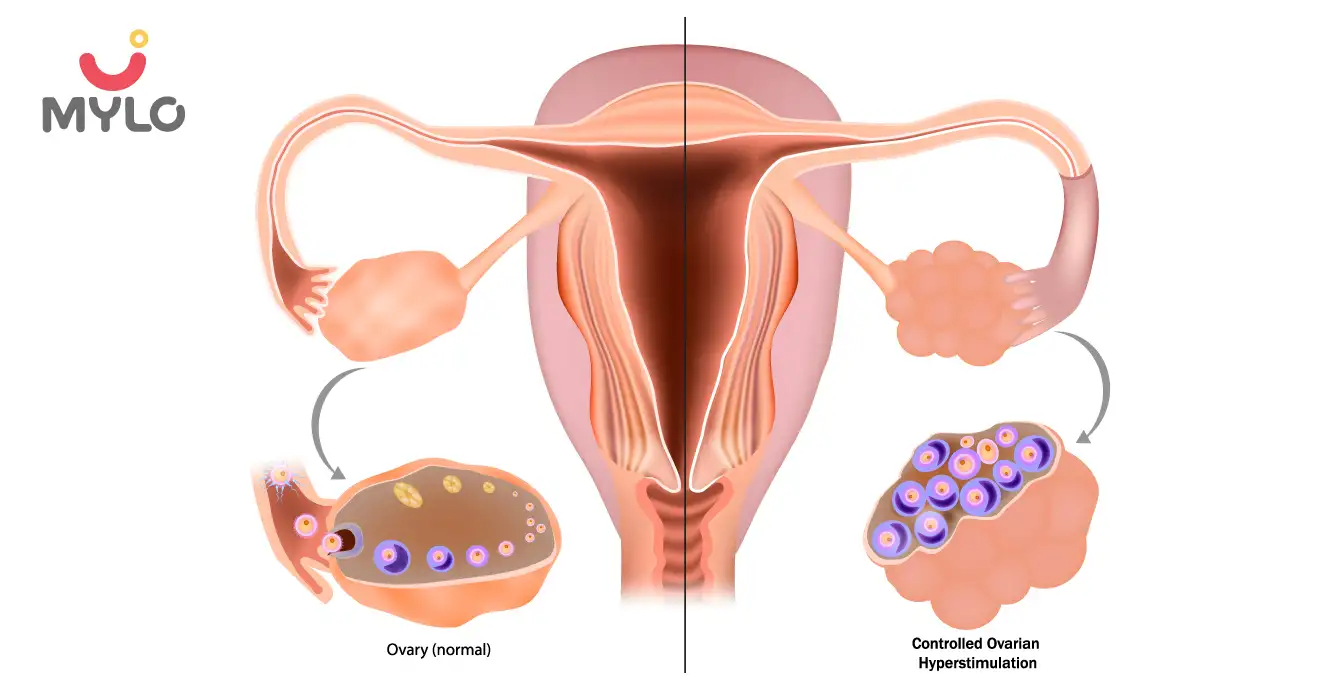
In Vitro Fertilization (IVF)
Ovarian Stimulation: Understanding the Process and What to Expect
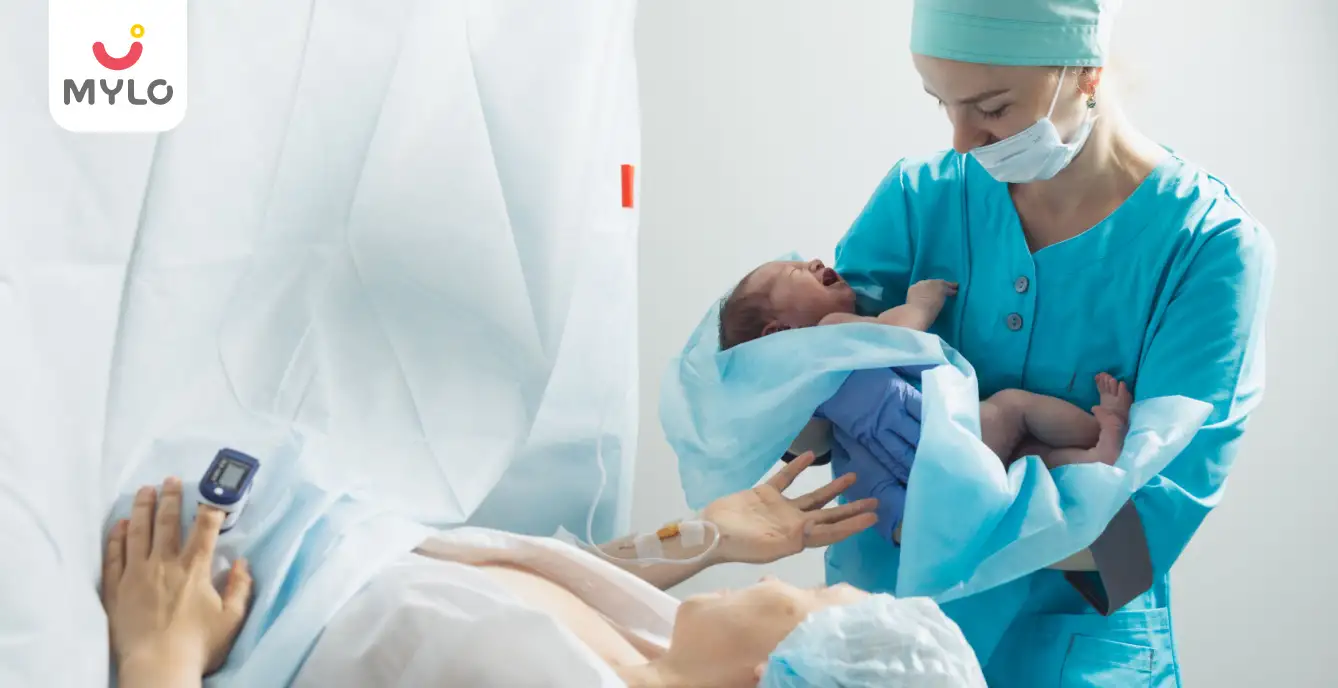
In Vitro Fertilization (IVF)
IVF Baby Delivery: Will You Have a C Section or Vaginal Delivery?
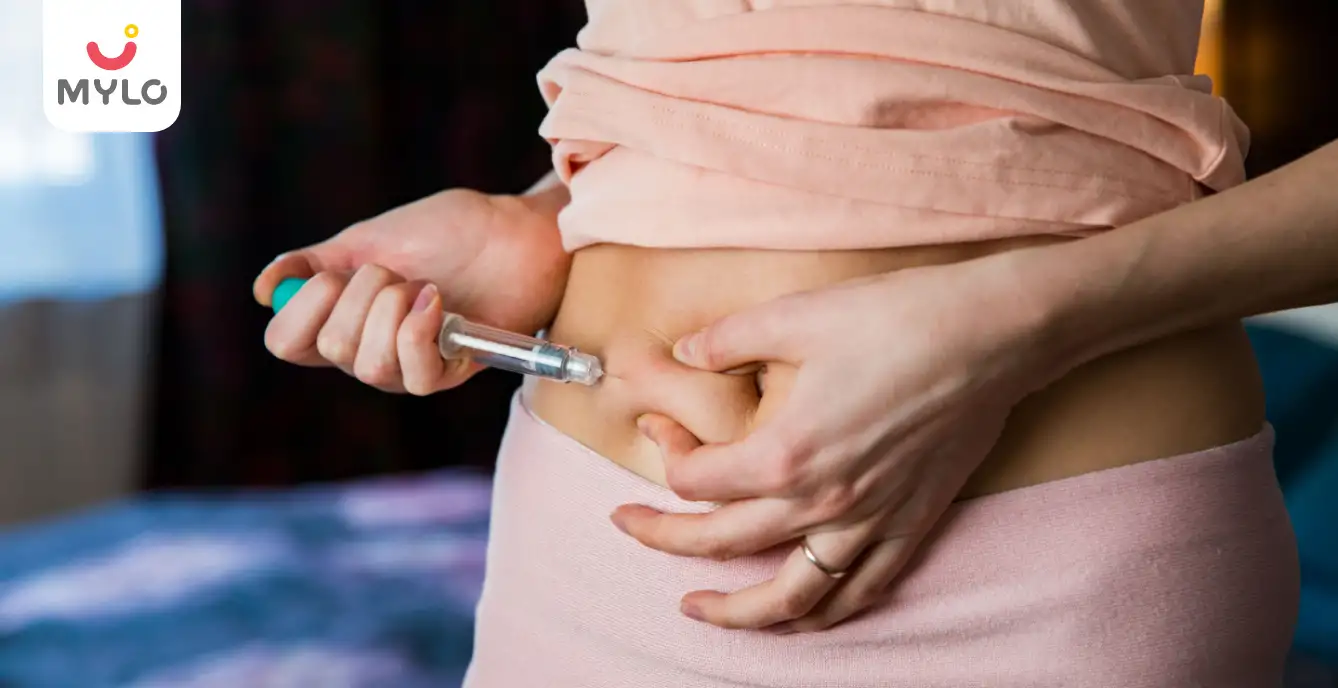
In Vitro Fertilization (IVF)
How Many Injections for IVF Treatment Do You Really Need

Conception
IUI Failure Symptoms & Reasons: Understanding Why IUI Fails & What to Do Next

Celebrate Breast Feeding Week
Fever During Breastfeeding: Tips from Experts for New Moms
- Indian Food to Increase Breast Milk: Everything You Need to Know
- Lactose Intolerance in Babies: A Parent’s Guide to Identifying and Managing it
- TESA IVF: How This Procedure Can Help You Achieve Your Dream of Parenthood
- How Can You Encourage Sensory Play for Your Baby and What are Its Benefits?
- After How Many Weeks IVF Pregnancy Is Safe: Understanding The Ideal Timeline
- Exploring the Senses: 9 Incredible Benefits of Sensory Play for Your Child's Development
- The Ultimate Guide to Childproofing Your Home
- Start Their Love for Reading Early: The Best Books for Baby's First Library
- CMPA (Cow's Milk Protein Allergy): Identifying Symptoms and Understanding Treatment
- Birth Control Options While Breastfeeding: Balancing Parenthood and Contraception
- Period During Breastfeeding What Every New Mother Should Know
- Role of Stories and Rhymes in Your Baby’s Brain Development
- Intracytoplasmic Sperm Injection (ICSI) How It Can Help Treat Male Infertility
- Baby Sleeping While Breastfeeding: Understanding the Causes and Solutions


AWARDS AND RECOGNITION
Mylo wins Forbes D2C Disruptor award
Mylo wins The Economic Times Promising Brands 2022
AS SEEN IN
















At Mylo, we help young parents raise happy and healthy families with our innovative new-age solutions:
- Mylo Care: Effective and science-backed personal care and wellness solutions for a joyful you.
- Mylo Baby: Science-backed, gentle and effective personal care & hygiene range for your little one.
- Mylo Community: Trusted and empathetic community of 10mn+ parents and experts.
Product Categories
baby carrier | baby soap | baby wipes | stretch marks cream | baby cream | baby shampoo | baby massage oil | baby hair oil | stretch marks oil | baby body wash | baby powder | baby lotion | diaper rash cream | newborn diapers | teether | baby kajal | baby diapers | cloth diapers |



